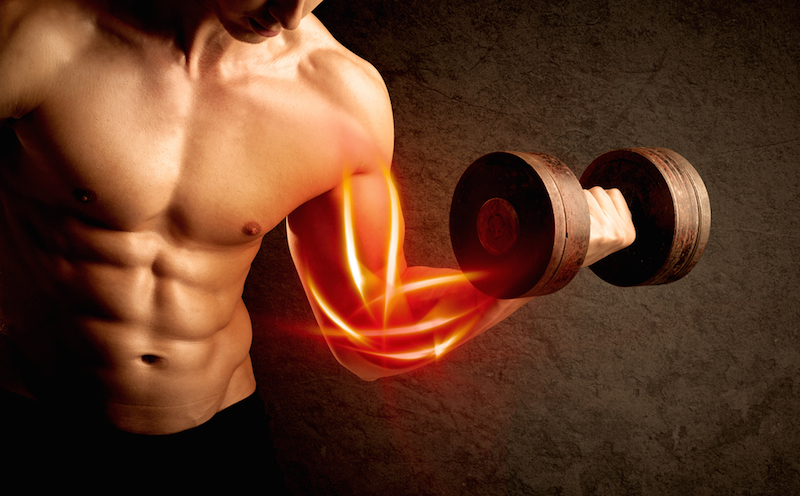
Get the world’s most fascinating discoveries delivered straight to your inbox.
You are now subscribed
Your newsletter sign-up was successful
Want to add more newsletters?

Delivered Daily
Daily Newsletter
Sign up for the latest discoveries, groundbreaking research and fascinating breakthroughs that impact you and the wider world direct to your inbox.

Once a week
Life's Little Mysteries
Feed your curiosity with an exclusive mystery every week, solved with science and delivered direct to your inbox before it's seen anywhere else.

Once a week
How It Works
Sign up to our free science & technology newsletter for your weekly fix of fascinating articles, quick quizzes, amazing images, and more

Delivered daily
Space.com Newsletter
Breaking space news, the latest updates on rocket launches, skywatching events and more!

Once a month
Watch This Space
Sign up to our monthly entertainment newsletter to keep up with all our coverage of the latest sci-fi and space movies, tv shows, games and books.

Once a week
Night Sky This Week
Discover this week's must-see night sky events, moon phases, and stunning astrophotos. Sign up for our skywatching newsletter and explore the universe with us!
Join the club
Get full access to premium articles, exclusive features and a growing list of member rewards.
Everyone wants to get the most out of the time they spend exercising, and "preworkout" supplements claim to help you do exactly that. It might be tempting to try one of these supplements before hitting the gym or heading out for a run, in hopes of increasing your energy levels, muscle power or endurance during your workout.
Preworkout supplements often contain a mystery blend of ingredients ranging from caffeine to guarana to creatine. But do these supplements work, and are they safe to take?
It turns out that these supplements may just change the way you feel while you're working out. Many of the ingredients in preworkout supplements are intended to give athletes the perception that their workout is supercharged, said Jordan Moon, an exercise physiologist and sports nutritionist at the United States Sports Academy and Concordia University Chicago, and chief science officer at the fitness tracking website Fittrace.com.
"You've got ingredients that are going to increase blood flow, increase heart rate, increase focus, increase blood flow to the skin and give you a little tingle," Moon told Live Science.
But those physical effects don't make people bigger, stronger or faster, Moon said.
And although some of these supplements' ingredients — such as caffeine, creatine and beta-alanine — have been shown to modestly enhance performance in extreme athletes and bodybuilders, they only give people an edge if they are pushing themselves to the limit, Moon said.
And some supplements on the market may contain illegal and dangerous additives, such as amphetaminelike stimulants. Even supplements that contain only legal ingredients can include high levels of caffeine, which can have a negative effect on the heart, recent testing by one independent lab found. [Macho Man: 10 Wild Facts About His Body]
Get the world’s most fascinating discoveries delivered straight to your inbox.
Caffeine rush
Several studies have shown that taking caffeine can provide a physical boost before a workout. For instance, a 2012 study in the Journal of Strength Conditioning and Resistance found that men who took caffeine supplements could deadlift, bench-press and do other heavy lifting at greater weights compared with men who took a placebo. Other studies have suggested that runners and rowers can increase their aerobic capacity with a dose of caffeine, although the studies noted that the benefits of caffeine tend to wane as people develop a tolerance to it.
However, too much caffeine can pose a health risk, and supplements can contain much more than is found in food or drinks. A person could guzzle gallons of coffee and not suffer from a true caffeine overdose. But even at much lower levels, caffeine can worsen underlying conditions such as a heart arrhythmia, leading to cardiac arrest.
In recent testing, the supplement testing company LabDoor looked at 45 popular preworkout supplements and found that many contained extremely high doses of caffeine. One supplement contained 435 milligrams of caffeine — almost as much as four cups of coffee. (The research has not been published in a peer-reviewed journal, meaning it has not gone through the standard process used to vet scientific findings. LabDoor also links to sites such as Amazon and The Vitamin Shoppe, where consumers can purchase the supplements, and receives a commission on those sales.)
Although the lab found that none of the supplements contained a dose of caffeine that would be dangerous on its own, combined with a few cups of coffee or a soda, the supplements could easily make someone feel shaky, nauseated and ill, and could also exacerbate underlying heart conditions, said Neil Thanedar, CEO of LabDoor.
"The whole point [of these supplements] is to work out harder or more intensely," Thanedar told Live Science. So supplements with high caffeine levels are "putting you at risk of heart issues, and then telling you to go out and exert yourself."
However, Moon said the levels in most of these products are unlikely to be truly dangerous.
"Unless you're taking twice the dose or like four times the dose, you're still going to be at the safe maximum recommended amount of caffeine," Moon said. [How to Do the 7-Minute Workout]Creatine and amino acids
Almost all preworkout supplements contain creatine, which seems to boost energy production in muscle cells and also seems to draw fluids from the blood plasma into the skeletal muscle, which can improve muscle performance.
Creatine supplementation has shown modest benefits in a few small trials. A 2003 study in the Journal of Athletic Training found that college football players taking the supplement had less cramping and dehydration, as well as fewer injuries, than players who took a placebo. And a 2002 study of 20 athletes in the journal Nutrition found that creatine increased their body mass and gave them peak power during short sprints.
However, creatine must be taken regularly in order to "build up" to sufficient levels, Moon said. Taking it once or twice a week before a workout will not produce the necessary level to have an effect, and it only works when people push themselves hard during a workout.
Most "people who go to the gym spend 90 percent of the time talking and resting over lifting," Moon said. "They might not even be pushing themselves hard enough to get any of the effectiveness of the ingredients."
LabDoor's testing showed that the labels of most supplements that were found to contain creatine did not list the amounts of creatine they contained. Moon noted that LabDoor did not test one of the most popular preworkout supplements, Jim Stoppani's 12-Week Shortcut to Size.
Moon also said that grading supplements based on testing the levels of their ingredients may be misleading because there's no good research on what dose may be effective for many of the supplement ingredients, some of which act synergistically. And consumers should know that supplement makers often tweak their products' formulations every four or five months, so testing from companies like LabDoor will always be "playing catch-up" with these products, Moon added.
Other common preworkout ingredients include the B vitamin niacin, which can cause sweatiness and blood flow to the skin called a "niacin flush," and vasodilators, such as citrulline, which widen blood vessels. Although studies don't show that these ingredients increase muscle mass per se, the increased blood flow to the muscles may make "your muscles feel pumped, and you look bigger when you're working out," Moon said.
The effect, however, is transient, he said.
Realistically, "the only time people really need to take a preworkout [supplement] is if their nutrition is non-ideal and they need help to get some energy," Moon said. For example, that may include a wrestler who's trying to fit into a lower weight class but still needs to work out, or someone on a low-carb diet who's still trying to bulk up, he said.
Proprietary blends
Either way, there's little evidence that the "proprietary blends" of ingredients that are found in preworkout supplements — which can be a grab bag of up to 10 ingredients — help boost athletic training any more than the individual ingredients alone. A randomized, controlled study published in 2014 in the Journal of Sports Science and Medicine found that athletes who took a supplement called SizeOn Maximum Performance performed no better than athletes taking a combination of protein, carbohydrates and creatine.
But by positioning their products' unique recipes as a trade secret, supplement makers circumvent the need to label each product with the dose of each individual ingredient, meaning a given supplement may have too little creatine, for instance, to have an effect, Thanedar said.
Dangerous additions
The biggest potential risk associated with preworkout supplements is the inclusion of dangerous substances, according to both Thanedar and Moon. For instance, the Food and Drug Administration recently filed criminal charges against USPLabs, the makers of the preworkout supplements Jack3d and OxyElite Pro, which have been linked to acute liver damage and multiple deaths.
The FDA found that the supplements contained a dangerous amphetamine precursor called 1,3-dimethylamylamine, or DMAA, which is not on the FDA's list of approved supplement ingredients.
LabDoor's testing revealed that the newer formulations of these supplements do not contain the illegal DMAA. However, another supplement, a drink called Train Critical FX, contained a similar amphetamine precursor, called BMPEA (beta-methylphenethylamine), the testing showed. BMPEA is a doping agent that can bring heart risks, and is also not on the FDA's list of approved supplement ingredients.
"This ingredient, as well as other stimulants, really have no business being in the dietary supplement marketplace," said Andrea Wong, vice president of scientific and regulatory affairs at the Council for Responsible Nutrition, a trade organization for the supplement industry.
Ultimately, while most preworkout supplements are probably not dangerous, there's little scientific backing for some of their more overblown claims.
"In the supplement industry, it's about marketing; it's not about what's in the product," Moon said. "Supplements don't really do that much unless you're already doing a lot on your own."
Follow Tia Ghose on Twitter and Google+. Follow Live Science @livescience, Facebook & Google+. Original article on Live Science.

Tia is the editor-in-chief (premium) and was formerly managing editor and senior writer for Live Science. Her work has appeared in Scientific American, Wired.com, Science News and other outlets. She holds a master's degree in bioengineering from the University of Washington, a graduate certificate in science writing from UC Santa Cruz and a bachelor's degree in mechanical engineering from the University of Texas at Austin. Tia was part of a team at the Milwaukee Journal Sentinel that published the Empty Cradles series on preterm births, which won multiple awards, including the 2012 Casey Medal for Meritorious Journalism.
 Live Science Plus
Live Science Plus












